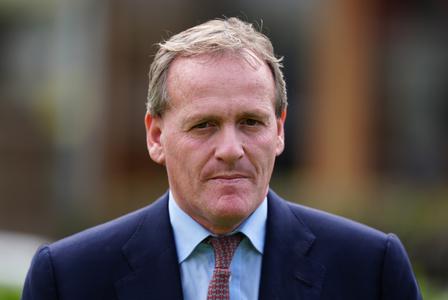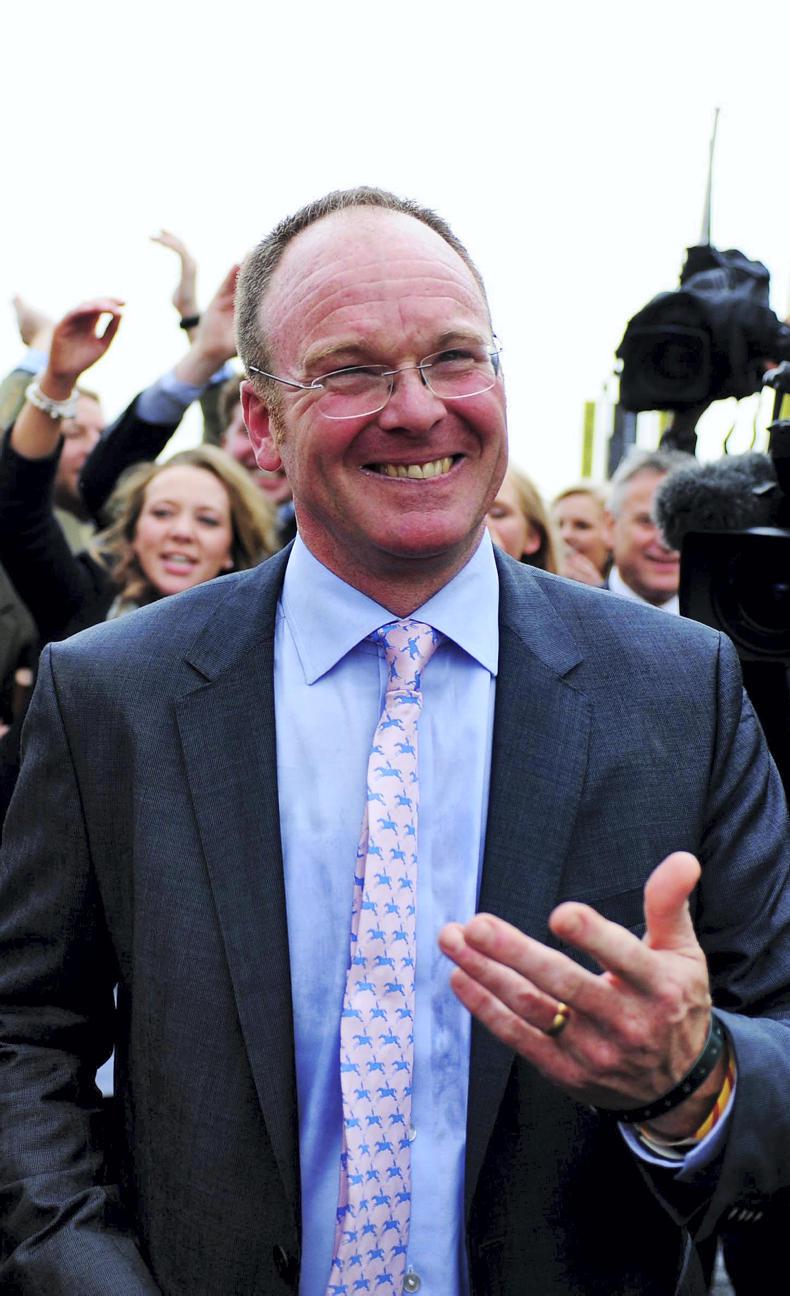TRAINERS on both sides of the Irish Sea have made clear they do not want to see restrictions introduced which would limit overseas participation in races in either jurisdiction.
Their comments follow an incendiary statement this week from British trainer Dr Richard Newland who has suggested a blanket ban on Irish-trained runners in all British jumps races, with only limited exceptions for the Cheltenham Festival.
Claiming that “British National Hunt racing is in crisis”, Dr Newland says “it is essential we tackle the Irish dominance” and he has urged the British Horseracing Authority [BHA] to take decisive action.
The trainer was reacting to a statement issued last weekend by BHA chief executive Julie Harrington in which she said “British racing must act swiftly to improve the quality of National Hunt horses bred, owned and trained in Britain.”
Harrington was motivated to issue her statement by results at the Cheltenham Festival where Irish-trained horses won 18 of the 27 races over four days. Irish horses also won 18 races at each of the previous two Festivals and 23 races the year before. The last time British horses won more Cheltenham races than the Irish was in 2015.
Speaking to The Irish Field yesterday, top British trainer Nicky Henderson said: “There should be no restrictions and that’s that. I believe this is a cyclical thing and the momentum will swing back to Britain at some point.
“There are plenty of good horses in Britain. Some owners are deciding to have horses in Ireland and it’s for different reasons. I don’t think there is one overriding issue and I don’t think there is much the BHA can do about it.”
Paul Johnson, chief executive of the National Trainers Federation in Britain, said: “The view of the NTF has always been that we encourage open competition provided it is on a level playing field from a regulatory perspective.
“Cheltenham is all about that competition – it just happens at the moment that we are behind where we would like to be but hopefully we can change that in the coming years.”
Asked what actions could be taken to redress the balance of power, Johnson said: “I think that the first step is to better understand the circumstances that have led us to where we are – success attracts success and we have seen a snowball effect because of this in recent years.
“We need to ask ourselves what the underlying reasons were for the start of that – there are probably a number of these but they could include race planning, economics, ownership experience or access to the best bloodstock to name but a few.
“Have we actually asked those GB-based owners with horses based in Ireland what the reasons are?
“There will likely be different depending on what the fact-finding exercise tells us – ultimately it probably leads to a plan that will have some immediate actions and some that will take a number of years to bear fruit. Some parts of this are probably already underway, such as on the breeding side.
“There is no question of the ability of trainers in Britain, we need to understand how to ensure a more even spread of ammunition for them to be able to be more successful at the Festival in the coming years.”
Ryan McElligott, Johnson’s counterpart in the Irish Racehorse Trainers Association, said: “To talk of introducing restrictions on running horses from one jurisdiction in another is lamentable and a retrograde step in the extreme. To be honest, I think this is a laughable notion.
“Restrictions are a throw-back to the outdated and utterly disproved theory of protectionism. It has been shown conclusively that it does not work in any shape or form.”
In his statement, Dr Newland urged the BHA to take action. “All the BHA can do is control its own racing,” he said. “They can do that by saying the Irish are not eligible to run in UK jump races or charge much higher entry fees for international horses to address the funding issue.”
He also referred to the anti-doping initiative launched jointly by the BHA and Irish Horseracing Regulatory Authority before Cheltenham which saw samples taken from over 120 Irish-trained horses entered for the Festival. Officials from the BHA were present for these out-of-competition tests.
“This suggests to me a lack of trust in the Irish anti-doping approach,” Newland said.
In fact the anti-doping initiative also allows for IHRB officials to be present at British training yards for drug tests on horses entered for Irish races.
Dr Newland’s co-trainer Jamie Insole has distanced himself from his business partner’s comments regarding entry restrictions.
Insole, who is a grandson of Kathleen and the late Vivian Kennedy on the Curragh, posted on social media: “My sister trains horses in Ireland and I’m half-Irish with the majority of my family in racing in Ireland. I’m here to train horses and get winners. I do not share that view on NH racing.”
In her statement BHA boss Julie Harrington congratulated the Irish winners at Cheltenham before adding: “I have no doubt that the men and women who train horses here in Britain are more than a match for their Irish counterparts. However, they need the ammunition and at present the balance of power and the best horses are going to our colleagues in Ireland, and in particular one yard.
“The Irish domination of the Grade 1 races [at Cheltenham] has illustrated that the issue is becoming more pronounced and more damaging for the sport on both sides of the Irish sea.
“Put simply, the rate of decline of jump racing in Britain at the top end has outstripped the measures that have been put in place to tackle it. We must do more, more quickly, and in a more coordinated and decisive manner if we are going to restore British jump racing to the standing at which it belongs.”


 This is a subscriber-only article
This is a subscriber-only article
 It looks like you're browsing in private mode
It looks like you're browsing in private mode










SHARING OPTIONS: